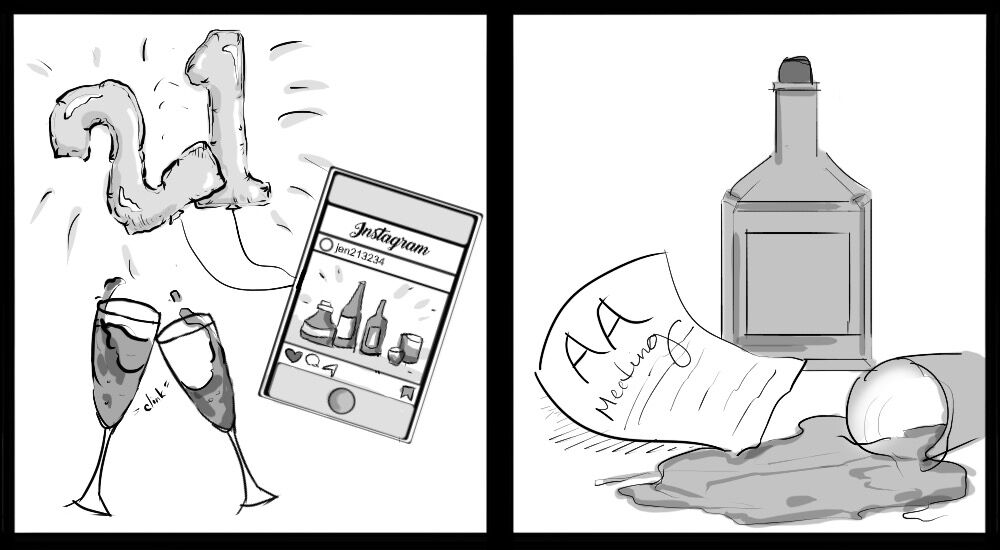Alcohol is a frequent issue within college communities. It can be found at most house parties and almost every night out on The Square. Texas State is widely viewed as a “party school,” and that is a moniker many students are proud to uphold.
The difference between alcohol and other drugs is that, besides it being legal, alcohol is often portrayed as fun and harmless. This is not the case when you look at statistics surrounding alcohol and college students.
The National Institute on Alcohol Abuse and Alcoholism reports that 37.9 percent of college students ages 18-22 binge drink, or consume an excessive amount of alcohol in a short period of time.
The institute reports that 1,825 college students 18-24 die from alcohol-related injuries. Additionally, 696,000 students between those ages report being assaulted by another student who has been drinking.
With those statistics in mind, it is obvious that alcohol is indeed a drug with consequences. There need to be measures in place to combat the effects of alcoholism, especially in populations where there is a high density of college-aged people.
Alcohol abuse led Texas State administrators to take measures like suspending fraternities for alcohol-related violations after the death of a student and Phi Kappa Psi pledge, Matthew Ellis. Texas State incorporates alcohol safety and awareness training for all new students entering the university in an effort to reduce alcohol-related incidents.
However, what tends to happen after those suspensions and trainings are completed is the prevalence of the romanticization of alcohol, especially in San Marcos and Texas State. The glorification of alcohol comes from several places, like ads where alcohol is associated with being cool, having good times and being likable. This influences the quantity of alcohol younger audiences decide to drink when going out.
There are societal norms and expectations that influence how and why some people drink. Vulnerable people feel the need to validate expectations from peers and drinking establishments, but this can be unhealthy behavior and can lead to over drinking. There is research supporting the idea that the fun of drinking is in the mind, not in the bottle.
Within San Marcos, there are countless ways for Texas State students, even those underage, to drink. The cheap drink specials advertised on The Square, party buses, house parties and endless opportunities Austin and San Antonio bring are all gateways to irresponsible alcohol use for students. Underage drinkers may not find success in bars without a fake ID, but measures are not taken for house parties or anyone with an older friend who could purchase alcohol for underage individuals.
Alcohol may have immediate and long-term effects on college students’ education. The National Institute of Alcohol Abuse and Alcoholism states that about 1 in 4 college students report academic consequences from drinking. These include skipping class, falling behind, doing poorly on exams and having an overall lower GPA.
Alcohol, like most everyday vices, is okay when used in moderation and responsibly. However, on college campuses, responsible drinking is not often common knowledge. There are measures put in place to try and slow or eradicate alcohol-related incidents, but more often than not, they are to no avail.
Texas State students should practice safer alcohol consumption, especially in the summer when students do not have access to all of the resources Texas State offers. Moderate, safe and responsible drinking should be the goal for all students, mainly because college students are a targeted and vulnerable population when it comes to alcoholism.
– Carissa Liz Castillo is an English senior
Categories:
Alcoholism in college students remains an important issue
July 11, 2018
Illustration by Makenna Timoteo
| Staff Illustrator
0
Donate to The University Star
Your donation will support the student journalists of Texas State University. Your contribution will allow us to purchase equipment and cover our annual website hosting costs.
More to Discover






